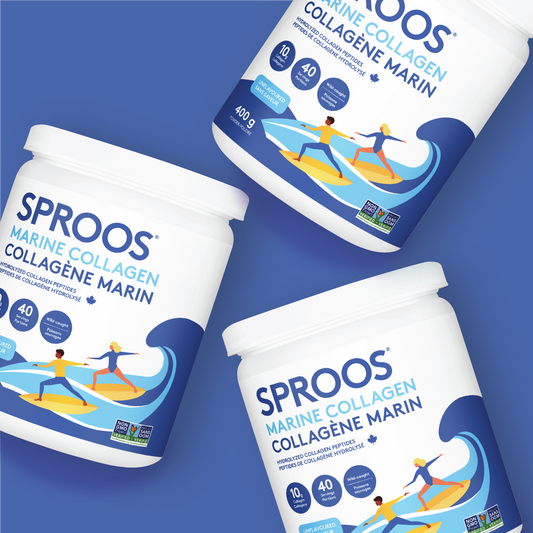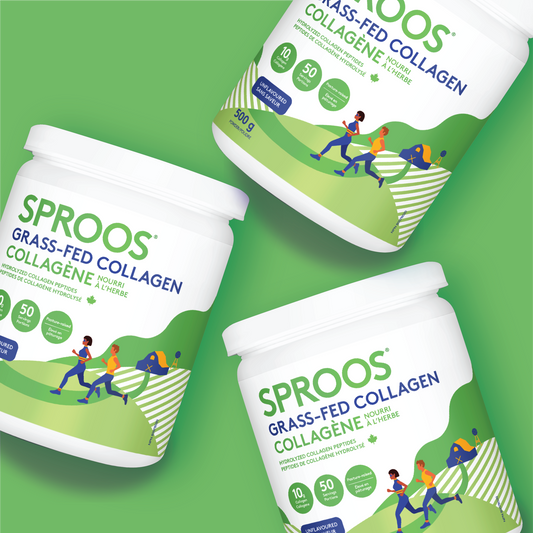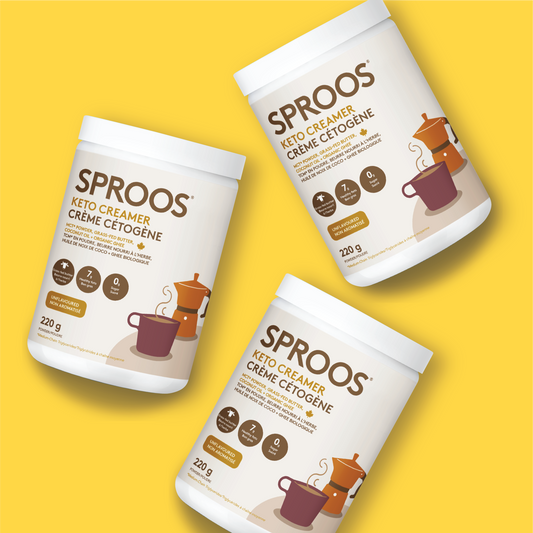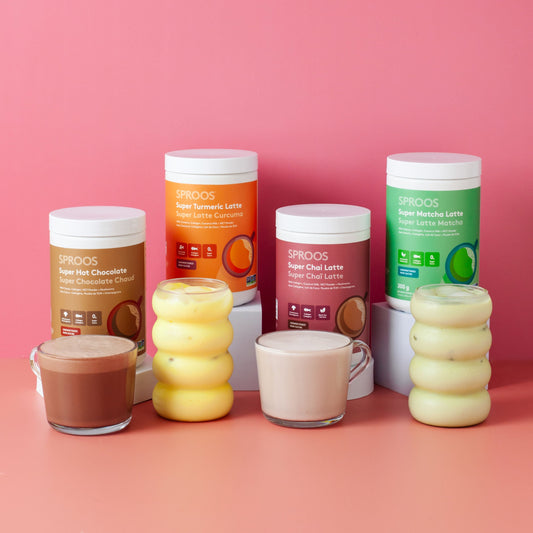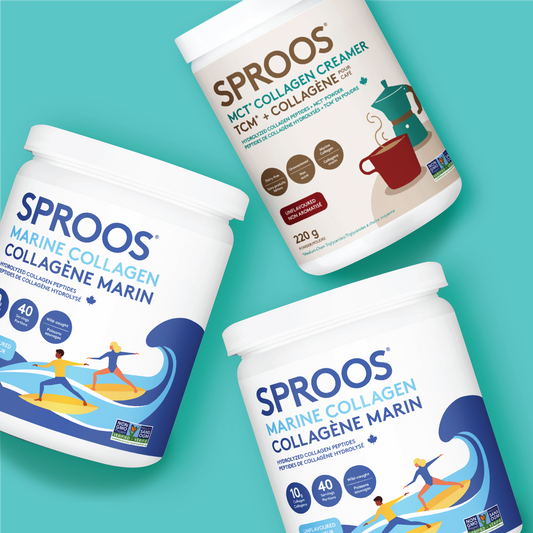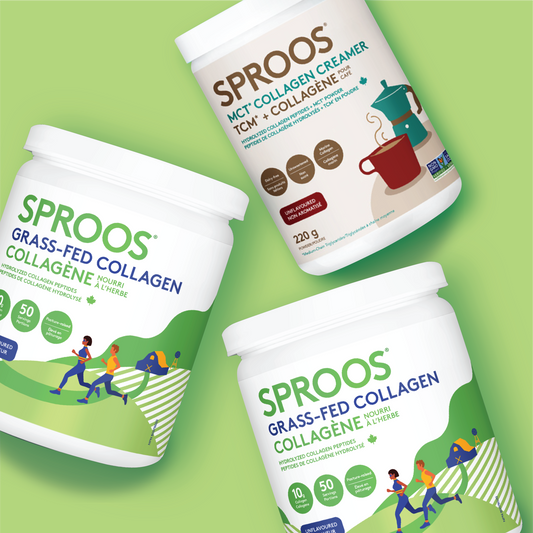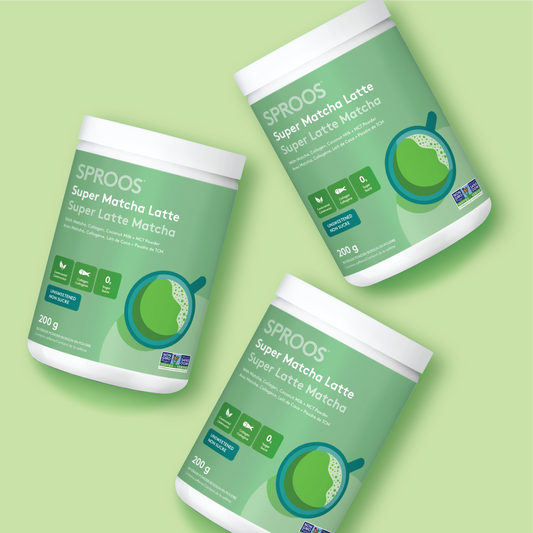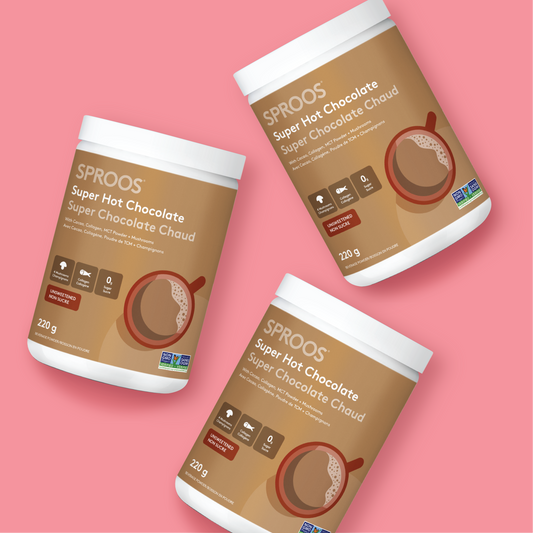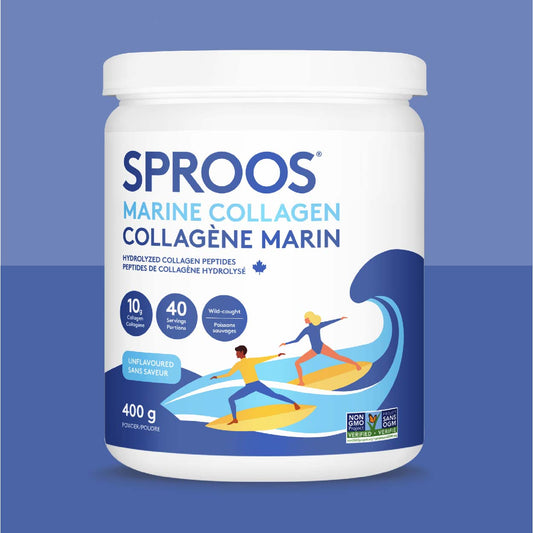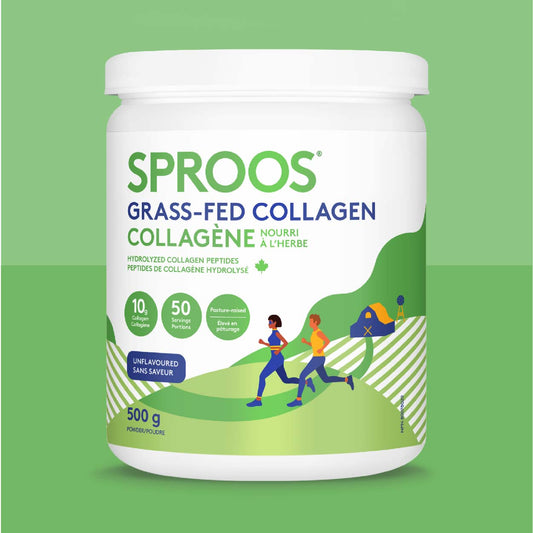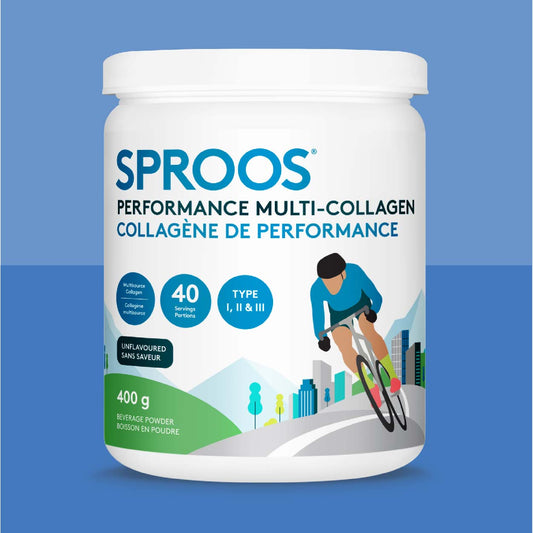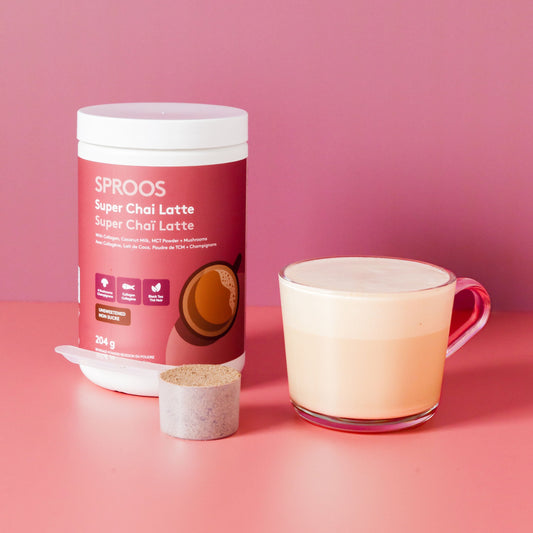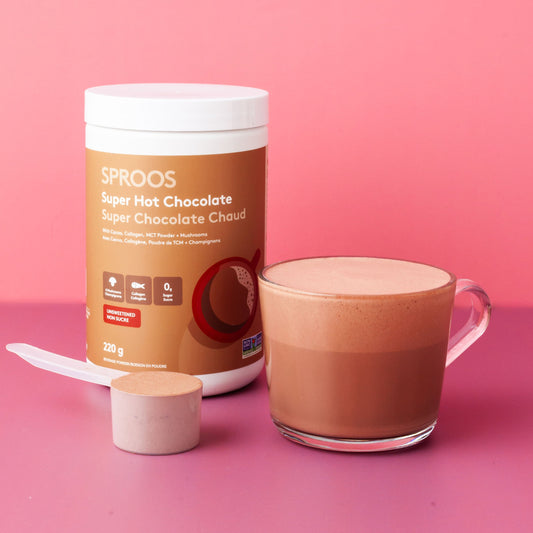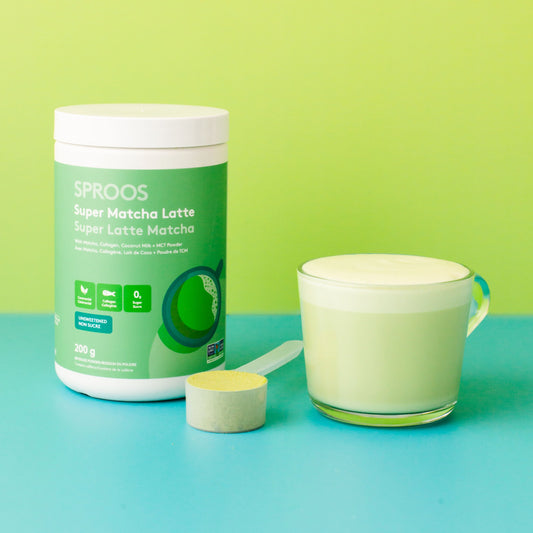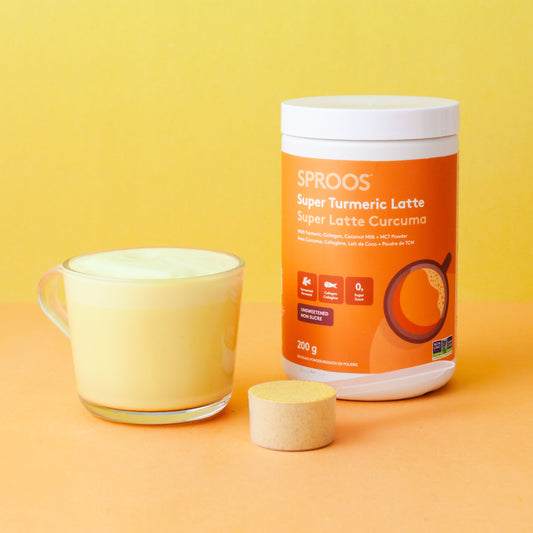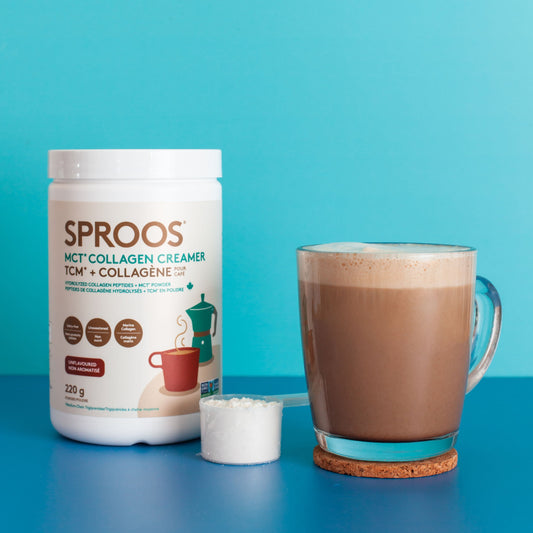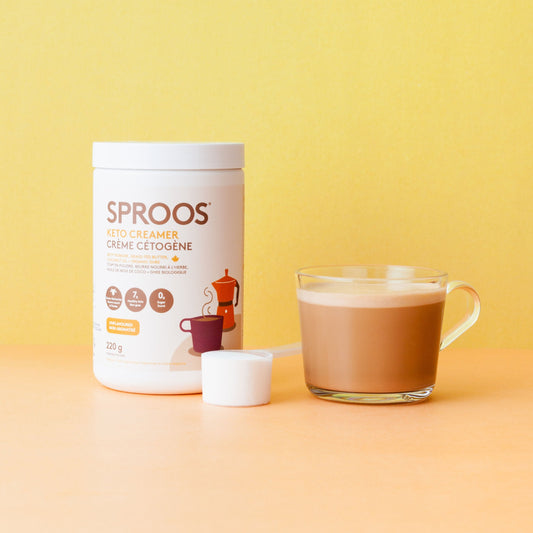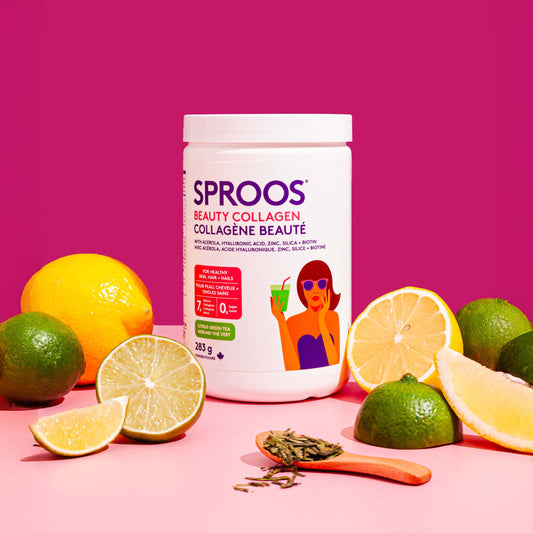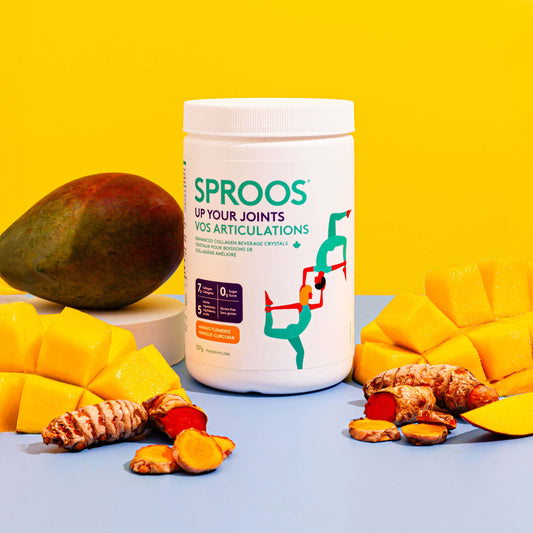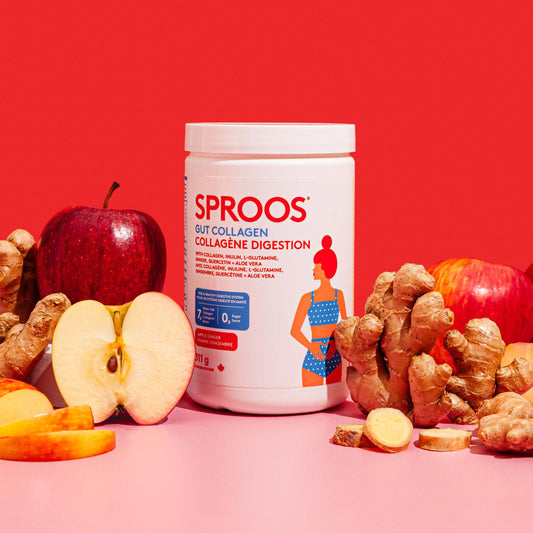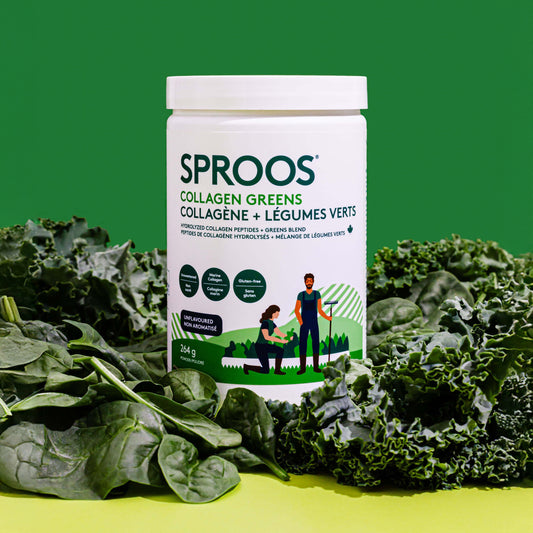Hello, friends! We are back again answering another very popular question: Is there vegan or plant-based collagen?
With a lot of the world trending towards looking for more sustainable and more ethical products and practises, it comes as no surprise that people want to know if there is a vegan source of collagen. We’ve seen lots of other food products and supplements have a vegan or plant-based version of the product, but can this be done with collagen?
What does vegan or plant-based mean?
The term vegan refers to someone who does not consume any animal products and who typically does not use animal products either. Plant-based means that a majority of someone’s diet comes from plants, but they may still consume some animal products.
Collagen sources can vary.
Keeping this in mind, collagen is an animal-based product.
Here at Sproos, we source our collagen from wild-caught small fish off the North Atlantic and grass-fed and finished cattle. Collagen is a protein that is found in the skin and scales of fish and in the hides of cattle. It is not found in plants. Currently, animals are the only way to product collagen products. With the way that science and technology is advancing, however, there could be a vegan or more plant-based source of collagen sometime down the line!
I’ve seen vegan collagen products, so this can’t be true!
Okay, so we’ve seen some “vegan collagen” products on the market as well.
But here’s the thing: these products are not actually collagen.
Instead, they are usually supplements that contain other nutrients that work closely with collagen in the body or have similar benefits as collagen.
For example, vitamin C is a vitamin that people frequently associate with collagen. This is because vitamin C actually helps to regulate the formation of collagen in our bodies (yes, our bodies produce collagen!). And although vitamin C is important, most of us get plenty of vitamin C naturally through our diets without the need to supplement it.
Another common component of “vegan collagen” products? Hyaluronic acid. Similar to vitamin C, hyaluronic acid works closely with collagen in the body. While it does not impact or influence collagen production directly, it does have similar benefits. Hyaluronic acid helps to maintain hydration and moisture in the skin. It also is an important component of synovial fluid. Synovial fluid helps to keep our joints lubricated and pain free!
Something else that can be found in these products – amino acids. Since collagen is a protein, it is made up of amino acids. Collagen is characterized by high levels of glycine, lysine and hydroxyproline. Each amino acid has its benefits, and can be found in other foods, not just in collagen!
What can I do as someone who follows a vegan diet and wants to increase their collagen production?
If you are worried that you won’t be getting the benefits of collagen as someone who does not consume animal products, here are a few things that you can do!
Eat high-protein foods!
As mentioned earlier, collagen is a protein meaning it is made up of amino acids. These amino acids are not unique to collagen and can be found in other foods as well. Some of these foods include eggs or dairy products (if you follow a more plant-based diet, this may be more suitable to you), legumes such as chickpeas, black beans and kidney beans, and soy products such as tofu. By eating these foods, you’ll be bound to get some glycine, lysine and hydroxyproline (the amino acid that makes up collagen!) through your diet.
Ensure you are eating nutrients that support collagen production.
In addition to vitamin C, there are other micronutrients that are important when it comes to collagen production. Copper, silicon and iron are all minerals that are also important and should be incorporated into the diet. Copper activates important players in the production of collagen and silicon (alongside collagen) ensures that we have strong bones and elasticity of our tissues. Iron ensures that we can properly absorb lysine, a key amino acid found in collagen.
What plant-based foods can these minerals be found in?
Copper: nuts and seeds, leafy greens and dark chocolate
Silicon: green beans, lentils, cherries and bananas
Iron: dark leafy greens
Support your skin and joints in other ways!
We all have different goals when it comes to taking collagen. Maybe you want shinier hair or glowing skin. Or maybe you want to prevent joint pain and keep moving. Whatever your goals, there are additional practises we can all be doing to look and feel our very best.
If your goal is glowing skin, establish a skincare routine that supports that! Take care of your skin by wearing sunscreen daily and ensure your diets is rich in antioxidants. If you are looking to keep your joints in tip top shape, strengthen the muscles surrounding your joints and get movement in that feels good. Whatever your goals are, we are here to support you!
The bottom line?
There are no vegan or plant-based collagen products (yet!). Like we mentioned, with the way technology and science is progressing, who knows what the future holds. In the meantime, support your body in different ways. Whether that means eating foods that help to promote collagen production or taking other precautions when it comes to being your healthiest self!


